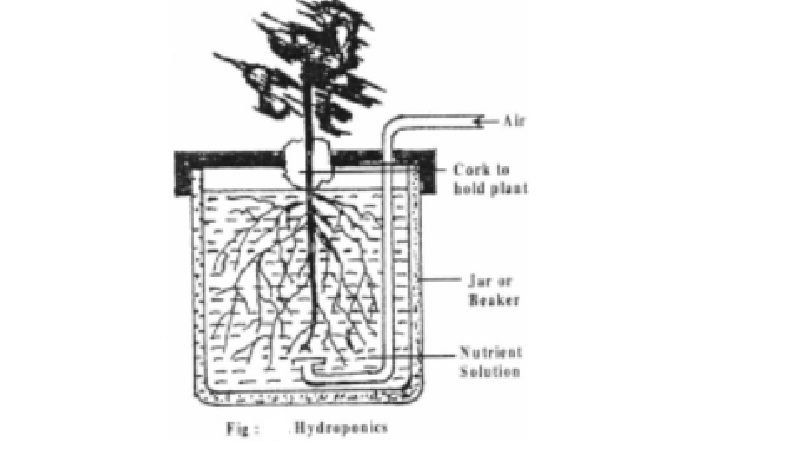Chapter: 11 th 12th std standard Bio Botany plant tree Biology Higher secondary school College Notes
Hydroponics : Advantages and Disavantagges of Hydroponics

Hydroponics
The term hydroponics has been used for growth of plants in water culture. This may also be referred to as soil-less agriculture, test-tube farming, tank farming or chemical gardening.
Commercially hydroponic cultures are maintained in large shallow concrete, cement wood or metal tanks in which gravel and nutrient solutions are taken. The tanks are provided with pumps and empty auxiliary tanks to pump out and circulate the growth solution and to maintain proper aeration of the nutrient solution.
The technique of hydroponics is employed to know which mineral element is essential for the growth and development of the plant. Commercially the application of hydroponics involve the production of horticultural and floricultural crops. This method may be used to increase yield of ornamentals such as gladioli, snapdragon, roses and vegetables such as carrot, radish, potatoes, tomatoes and lettuce.
Advantages of Hydroponics
i. It is possible to provide the desired nutrient environment.
ii. The acid-base balance can be easily maintained.
iii. Mulching, changing of soil and weeding are eliminated.
iv. Proper aeration of nutrient solution is possible.
v. Labour for watering of plants can be avoided.
vi. Tilling is not necessary.
Disadvantages of Hydroponics
i. Production is limited when compared to field conditions.
ii. Technical skill is required to design equipment.
iii. If a disease appears all plants in the container will be affected.
iv. Can be used only for short duration.
Related Topics